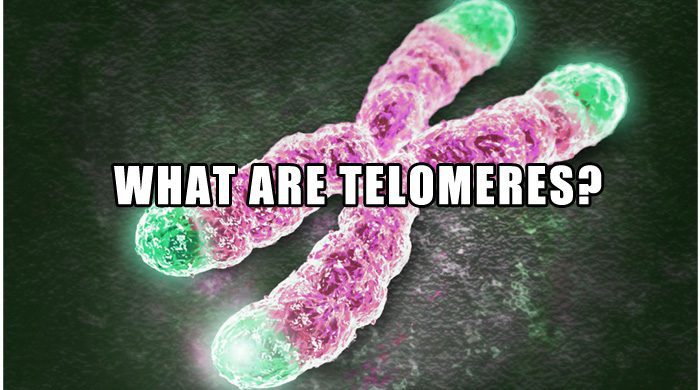Telomeres Definition

Telomeres are sections of DNA that cap the end of chromosomes. 23 pairs of chromosomes are in the nucleus of cells, and chromosomes are long threads of DNA that contain the genetic information of each cell.
Telomeres are special sections of DNA that don’t contain genetic information and can be thought of as tips at the end of shoelaces. These tips keep the DNA of chromosomes and their genetic information intact and keeps them from fraying and binding to another chromosomes.
The length of chromosome’s telomeres are directly tied to their cell’s lifespan. Cells replicate but this process doesn’t continue forever.
Each time a cell replicates and is replaced by a younger version of itself its telomeres become shorter. Once telomeres reach a certain length the cell can no longer replicate itself, leading to aging and cell death.
Oxidative stress from smoking, the consumption of saturated fat from animals, and stress quickens the shortening of telomeres and the aging of cells.






